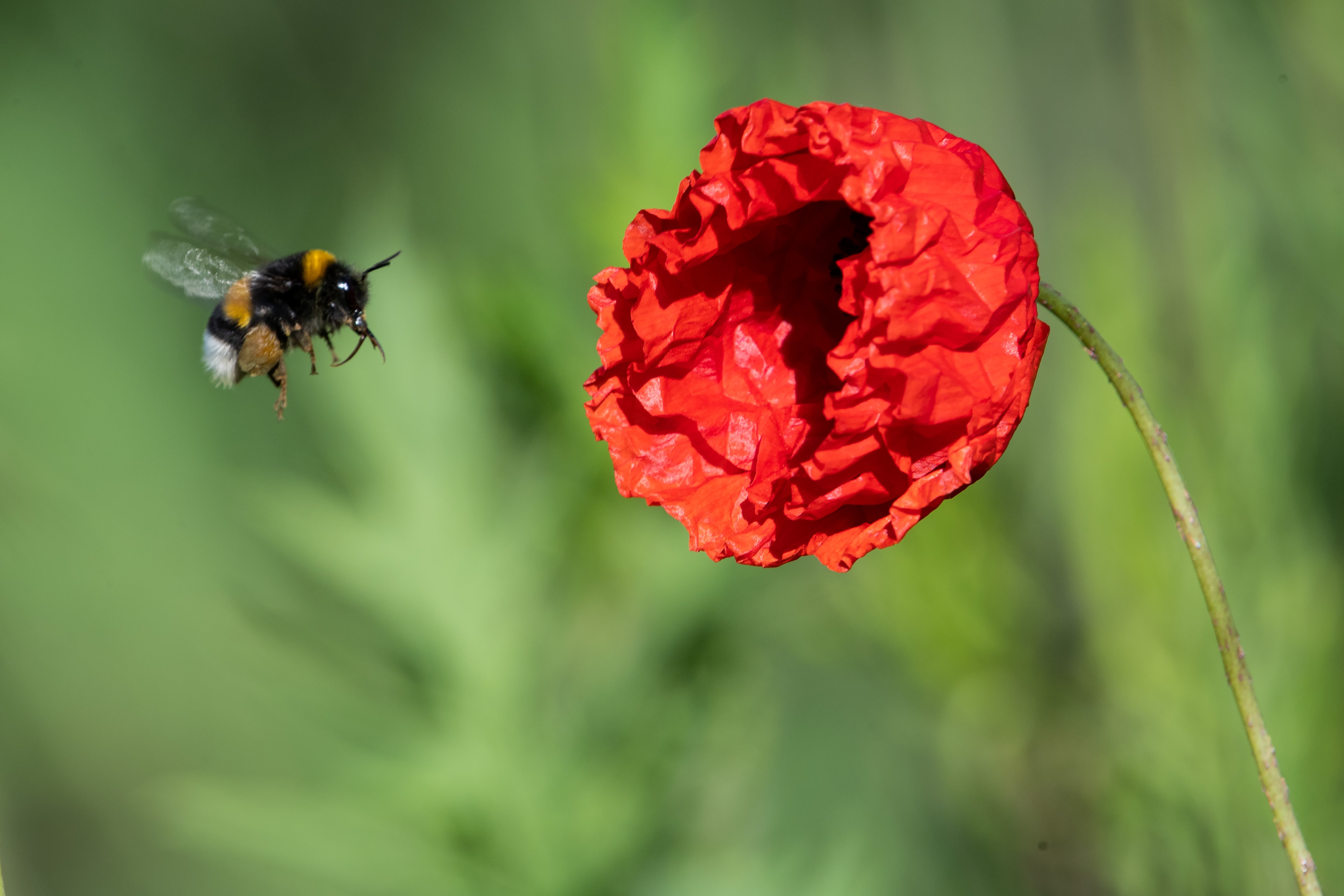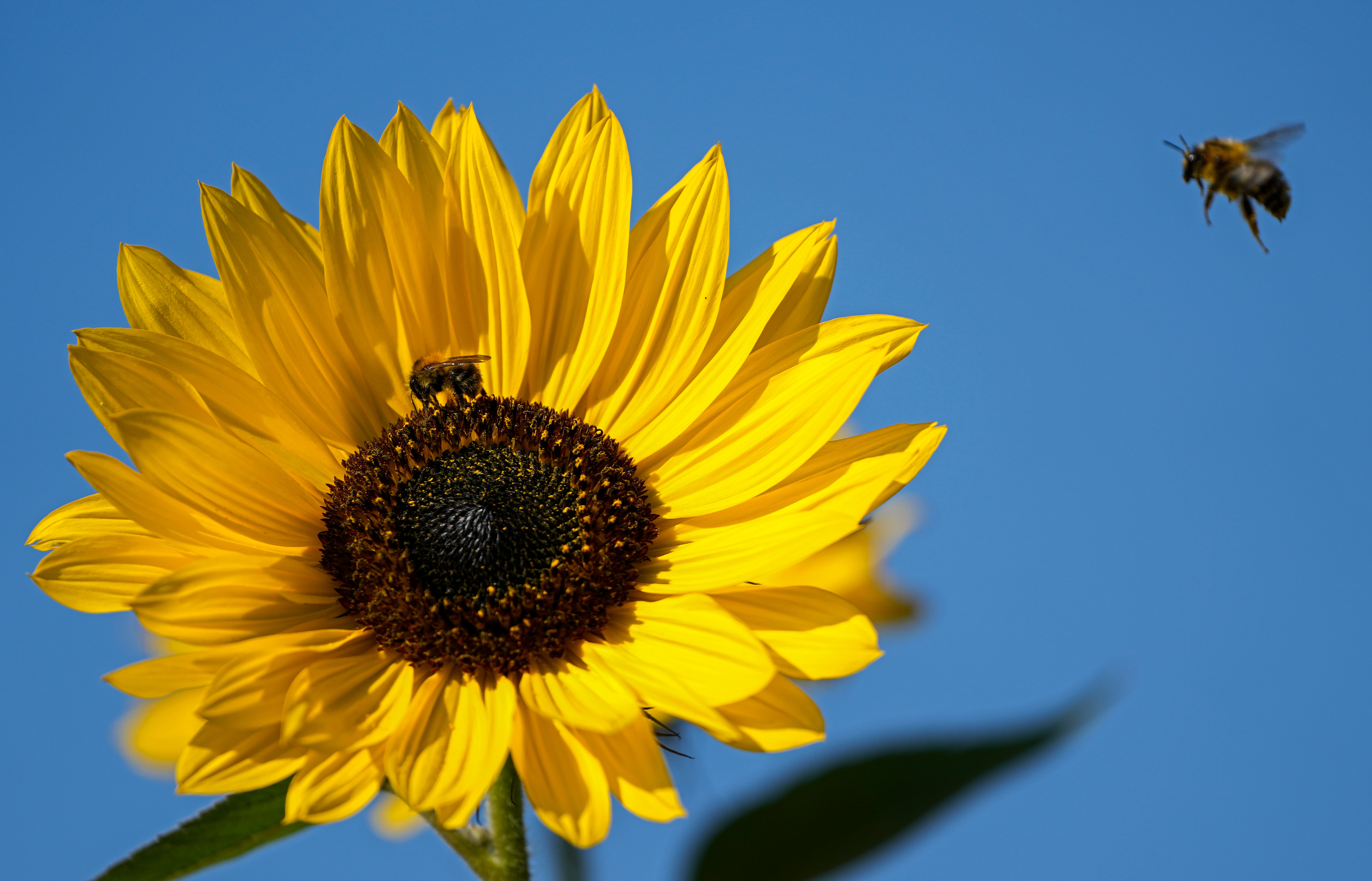Three in 10 Brits have no idea why bees are important to the environment, study claims
Half of those people polled admitted they don’t know what biodiversity is

Your support helps us to tell the story
From reproductive rights to climate change to Big Tech, The Independent is on the ground when the story is developing. Whether it's investigating the financials of Elon Musk's pro-Trump PAC or producing our latest documentary, 'The A Word', which shines a light on the American women fighting for reproductive rights, we know how important it is to parse out the facts from the messaging.
At such a critical moment in US history, we need reporters on the ground. Your donation allows us to keep sending journalists to speak to both sides of the story.
The Independent is trusted by Americans across the entire political spectrum. And unlike many other quality news outlets, we choose not to lock Americans out of our reporting and analysis with paywalls. We believe quality journalism should be available to everyone, paid for by those who can afford it.
Your support makes all the difference.Three in 10 Brits have no idea why bees are important to the environment, according to research.
A study of 2,000 adults found 66 per cent are worried about the decline in native British bees – with more than a third claiming numbers have dropped noticeably in their local area.
But while there are fears for the future of the winged insects, 28 per cent don’t know why they’re so crucial to the ecosystem – unaware bees fertilise many of the crops grown in the UK.
The winged insects are also a crucial part of biodiversity – which is important because a variety of plants and animals ensures there is food and clean water, along with many other benefits.
However, half of those polled admitted they don’t know what biodiversity is.
And despite there being more than 250 kinds of bee in the UK – all vital to biodiversity – seven in 10 can only identify a common honey or bumble types.
The study was commissioned by The British Bee Charity and Netflix to launch the new TV series ‘Man vs Bee’ which stars Rowan Atkinson CBE and is available now.
Greg Bool, from The British Bee Charity, said: “The general public, for the most part, knows that honey comes from bees.
“But most people fail to realise that we have almost 300 species of bumble bees and solitary bees in the UK.
“The narrative of ‘bees need help’ has been driven so hard in the past 10 years that it has caused an upsurge in the number of honeybee hives in the UK, when perhaps our focus should have been directed more at what we can do as individuals to help all bees and pollinators.
The study also found 67 per cent of respondents put the decline of bees in their area down to natural habitat loss.
To try and help them out, 54 per cent have put flowering plants in their garden to give them a pollen boost, and 28 per cent keep curious cats and dogs away from them.
While a quarter have stopped to give a thirsty bee a drink of sugar or water to give them enough energy to take flight again.
More than half think more education still needs to be done in schools and workplaces to highlight the plight of British bees.
And 57 per cent would like to see more flowering plants in green spaces in public areas, to give them much needed pitstops as they go about their days.
The study, carried out via OnePoll found 23 per cent would even consider taking up beekeeping to help the local honeybee populations thrive again.

The British Bee Charity and Netflix have teamed-up to call on general public to consider their local environment before deciding to keep hives.
To raise awareness of this and celebrate the launch of Rowan Atkinson’s new series, life-sized ‘Growin Atkinson’ sculptures, filled with pollen and nectar-rich wildflowers were commissioned.
The three ‘bee-edible’ sculptures were unveiled on the grounds of London’s St Paul’s Cathedral and are inspired by Atkinson’s first comedy creation in nearly a decade.
Greg Bool added: “We aim to raise awareness, inspire, and educate the need to provide more green spaces to support the plight of native species of British bees and pollinators.”



Join our commenting forum
Join thought-provoking conversations, follow other Independent readers and see their replies
Comments